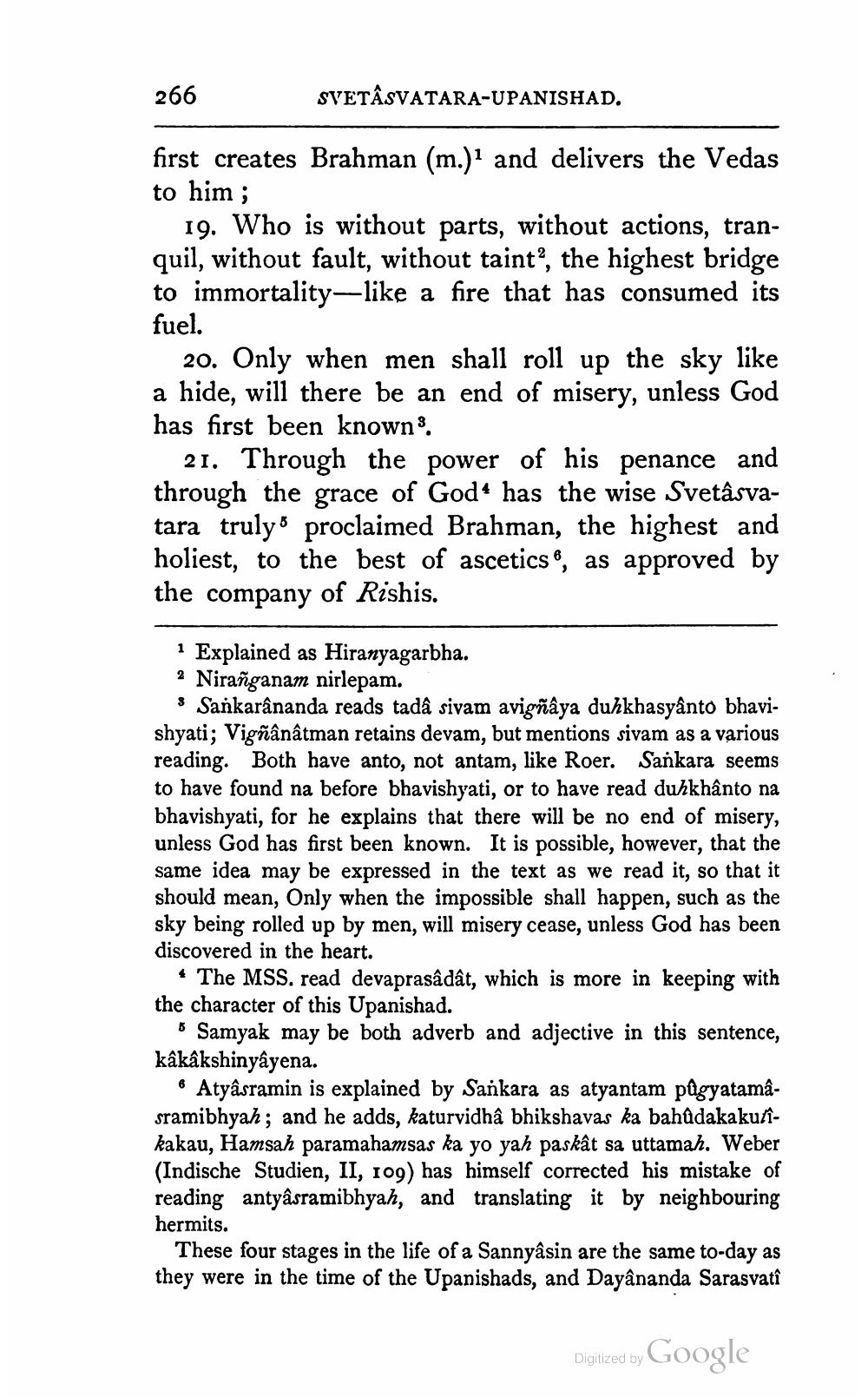________________
266
TARA-UPANISHAD.
first creates Brahman (m.)" and delivers the Vedas to him ;
19. Who is without parts, without actions, tranquil, without fault, without taint, the highest bridge to immortality-like a fire that has consumed its fuel.
20. Only when men shall roll up the sky like a hide, will there be an end of misery, unless God has first been knowns.
21. Through the power of his penance and through the grace of God has the wise Svetâsvatara trulyo proclaimed Brahman, the highest and holiest, to the best of ascetics, as approved by the company of Rishis.
1 Explained as Hiranyagarbha.
Nirañganam nirlepam. 3 Sankarananda reads tadâ sivam avigñâya duhkhasyanto bhavi. shyati; Vigñânâtman retains devam, but mentions sivam as a various reading. Both have anto, not antam, like Roer. Sankara seems to have found na before bhavishyati, or to have read duhkhânto na bhavishyati, for he explains that there will be no end of misery, unless God has first been known. It is possible, however, that the same idea may be expressed in the text as we read it, so that it should mean, Only when the impossible shall happen, such as the sky being rolled up by men, will misery cease, unless God has been discovered in the heart.
· The MSS. read devaprasâdât, which is more in keeping with the character of this Upanishad.
Samyak may be both adverb and adjective in this sentence, kâkâkshinyâyena.
* Atyâsramin is explained by Sankara as atyantam pügyatamasramibhyah; and he adds, katurvidhâ bhikshavas ka bahûdakakutikakau, Hamsah paramahamsas ka yo yah paskât sa uttamah. Weber (Indische Studien, II, 109) has himself corrected his mistake of reading antyâsramibhyah, and translating it by neighbouring hermits.
These four stages in the life of a Sannyâsin are the same to-day as they were in the time of the Upanishads, and Dayânanda Sarasvatî
Digitized by
Digitized by Google




